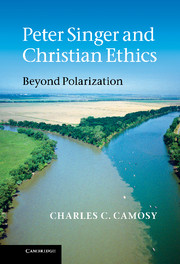Chapter 5 - Ethical theory
Published online by Cambridge University Press: 05 August 2012
Summary
The ethical point of view does, as we have seen, require us to go beyond a personal point of view to the standpoint of the impartial spectator. Thus, looking at things ethically is a way of transcending our inward-looking concerns and identifying ourselves with the most objective point of view possible – with, as Sidgwick put it, “the point of view of the universe.”
Peter Singer, Practical EthicsBy common good is to be understood “the sum total of social conditions which allow people, either as groups or as individuals, to reach their fulfillment more fully and more easily.” The common good concerns the life of all . . . Human interdependence is increasing and gradually spreading throughout the world. The unity of the human family, embracing people who enjoy equal natural dignity, implies a universal common good.
Catechism of the Catholic ChurchINTRODUCTION
Some more traditional approaches to academic ethics might have begun a book like this by exploring the topic of this chapter. In comparing Peter Singer and Christian ethics, one of the first things that will likely spring to mind (at least for an academic ethicist) is what appears to be a substantial difference in ethical theory. After all, as a utilitarian, Singer's goal is to maximize preference satisfaction, while the Church has moral rules which seem to directly contradict this way of approaching ethics. But there are good reasons to leave discussion of the theoretical approaches of both Singer and the Church until after applied issues have been examined. If we had begun with the differences in ethical theory this might have made it more difficult to see the broad-based agreement in how each approach applies their theory in the practical world. In addition, seeing the overlap in the realm of the practical can help us clear the conceptual space for understanding how the ethical theories of Peter Singer and the Church might not be as far apart as one might imagine. And especially in his more recent writings, Singer's approach attempts to downplay differences in ethical theory with the goal of getting many different kinds of people, with many different approaches to ethics, to agree with his practical conclusions.
- Type
- Chapter
- Information
- Peter Singer and Christian EthicsBeyond Polarization, pp. 178 - 214Publisher: Cambridge University PressPrint publication year: 2012

